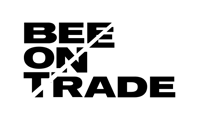For containerized cargo, FCA will provide the optimal cost and risk allocation, yet it necessitates that the seller exports the goods for clearance
FCA (Free Carrier) will probably be the best incoterm for your shipment if you are a buyer acquiring items from a foreign producer and shipping them abroad.
FCA (Free Carrier), FOB (Free on Board), and EXW (Ex Works) are often used by Incoterms® (per Incoterms® 2010) for international shipments, although FCA is the best choice for the importer.
Why does FCA beat out FOB?
FOB is inappropriate for shipments of containers. Even though the majority of cargo is delivered in containers that must be left at a CY or filled at a CFS before a carrier can load them onto the vessel, FOB agreements require the seller to deliver the items on board the ocean vessel.
The seller cannot transport the cargo directly to the ship unless they also own the port of origin.
The issue of buyer or seller accountability may be contested at the cost and expense of the buyer if cargo delivering to a CY or CFS under FOB arrangements is damaged in transit.
The incoterm FCA was created by the ICC (International Chamber of Commerce) following the 2010 modification to account for the containerization of contemporary shipping. The seller and the buyer may decide, following the FCA, that the buyer will pick up the products from the seller's premises or another specified location (e.g. CFS or CY).
The recently released Incoterms® 2020 introduced an additional provision to the FCA incoterm, however, as there were still some issues with its use. Parties can now agree that the buyer must instruct the carrier to issue to the seller, at the buyer's cost and risk, a transport document stating that the goods have been loaded.
The seller is then required to give the buyer a copy of the transaction document.
What makes FCA more favored than EXW?
According to the provisions of the FCA, the seller is in charge of export clearance and the loading of the goods (if the buyer picks them up at the seller's location).
EXW terms require the buyer to export-clear their goods, which can be expensive, time-consuming, and challenging if the buyer is not familiar with the nation's export laws. Since EXW merely requires that the seller make the goods available for pickup, the seller is also not responsible for loading the items onto the buyer's transportation.
The customer is still responsible for the expense and risk even though the seller may be in a superior position to load the items.
The final decision lies with the buyer and the seller if they agree on each party's responsibility for cost and risk. This must be determined before the shipment process begins.
